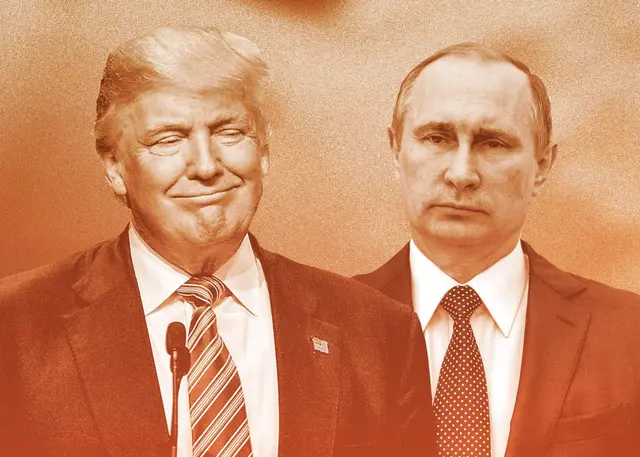By APD Writer Lu Jiafei
What transpired in the past days was reminiscent of Cold War-era rivalry, with Washington ramping up sanctions against Russia and Moscow ordering a massive expulsion of U.S. diplomatic staff there.
For U.S. President Donald Trump, a passionate advocate for mending U.S.-Russian relationship, the good news is that his Russian counterpart Vladimir Putin at least for now seems to not have given up hope of repairing bilateral ties.
The bad news, though, is that the worst is yet to come.
Days before Trump signed into law what he called “seriously flawed” sanctions bill which targets Russia and ties his hands on lifting Russian sanctions, Putin ordered the U.S. diplomatic mission in Russia to reduce its staff by 755 people, including U.S. and Russian nationals, by Sept. 1.
The Russian reprisal represents a reality check on the Russian side nine month after Trump’s upset victory against Democratic presidential nominee Hillary Clinton initially promised to usher in better ties between the two countries.
Despite the largest size of the reduction since the Cold War, this round of diplomatic reductions does not necessarily mean that there will be an exodus of Americans, since Russians account for a majority of the workforce of the U.S. diplomatic mission in Russia.
Also, Moscow announced its measures at the most “convenient” moment, immediately after U.S. Congress voted in favor of new Russian sanctions but before Trump could sign off on them.
“Putin is sending a message: he is punishing Congress’ America, not Trump’s America,” Alexander Baunov, a senior fellow at the Moscow Carnegie Center, wrote in a Facebook post.
“(Putin) has taken Trump out of the direct line of fire and spared his ego,” Baunov added.
After the signing of the sanctions legislation, the U.S. president, infamously known for his irascible temper and frequent use of Twitter, vented his frustration online, blaming the Congress for causing U.S.-Russian relationship to be at "an all-time and very dangerous low."
However, it would be naive for Trump to believe that the bilateral ties- already at “all-time low”- couldn’t be heading for worst.
In fact, despite being controlled by Trump’s Republican Party, the Congress is striding again on a collision course with Trump on how the United States should deal with Russia.
Right now, the Congress is considering a defense authorization legislation that, if passed into law, would require U.S. military to develop medium-range missiles currently banned by a U.S.-Russian arms control treaty signed during the later phase of the Cold War.
The Intermediate-Range Nuclear Forces Treaty (INF Treaty), signed in 1987 by then U.S. President Ronald Reagan and Soviet leader Mikhail Gorbachev, was aimed at eliminating all nuclear and conventional missiles, as well as their launchers, with ranges of 500–1,000 kilometers (310–620 mi) (short-range) and 1,000–5,500 km (620–3,420 mi) (intermediate-range).
In a move criticized by some observers as “congressional overreach,” the U.S. House of Representatives passed its version of the National Defense Authorization Act for 2018 last month with a provision to require the Pentagon to create a program to develop land-based medium-range missiles.
According to the House version of the bill, the United States would no longer be legally bound by the INF Treaty if Russia fails to comply with the INF Treaty within 15 months of the legislation’s enactment.
The U.S. Senate is expected to soon start debating its own version of the defense policy bill with similar language on development of medium-range missiles.
Back in February, the United States claimed that Russia had secretly deployed a new ground-launched cruise missile, thus violating the INF Treaty of 1987, an accusation strongly denied by Moscow since then.
During an interview with a Russian TV station during which he announced his decision to make U.S. diplomatic mission cut its staff dramatically, Putin warned that Russia has additional options to pressure U.S. interests.
“I hope it will not come to this,” said Putin then.
While Trump still harbors the hope for a rapprochement with Russia’s Putin, the Congress is making sure that the dream will not come true.
After spending one year in Palestine covering the Israeli-Palestinian conflict between 2013 and 2014, Jiafei Lu moved to Washington, D.C. in 2015 and started covering the U.S. presidential election till the very end of Donald Trump's upset victory early November, 2016. Since then, he has been working as a diplomatic correspondent for Xinhua.
 简体中文
简体中文

